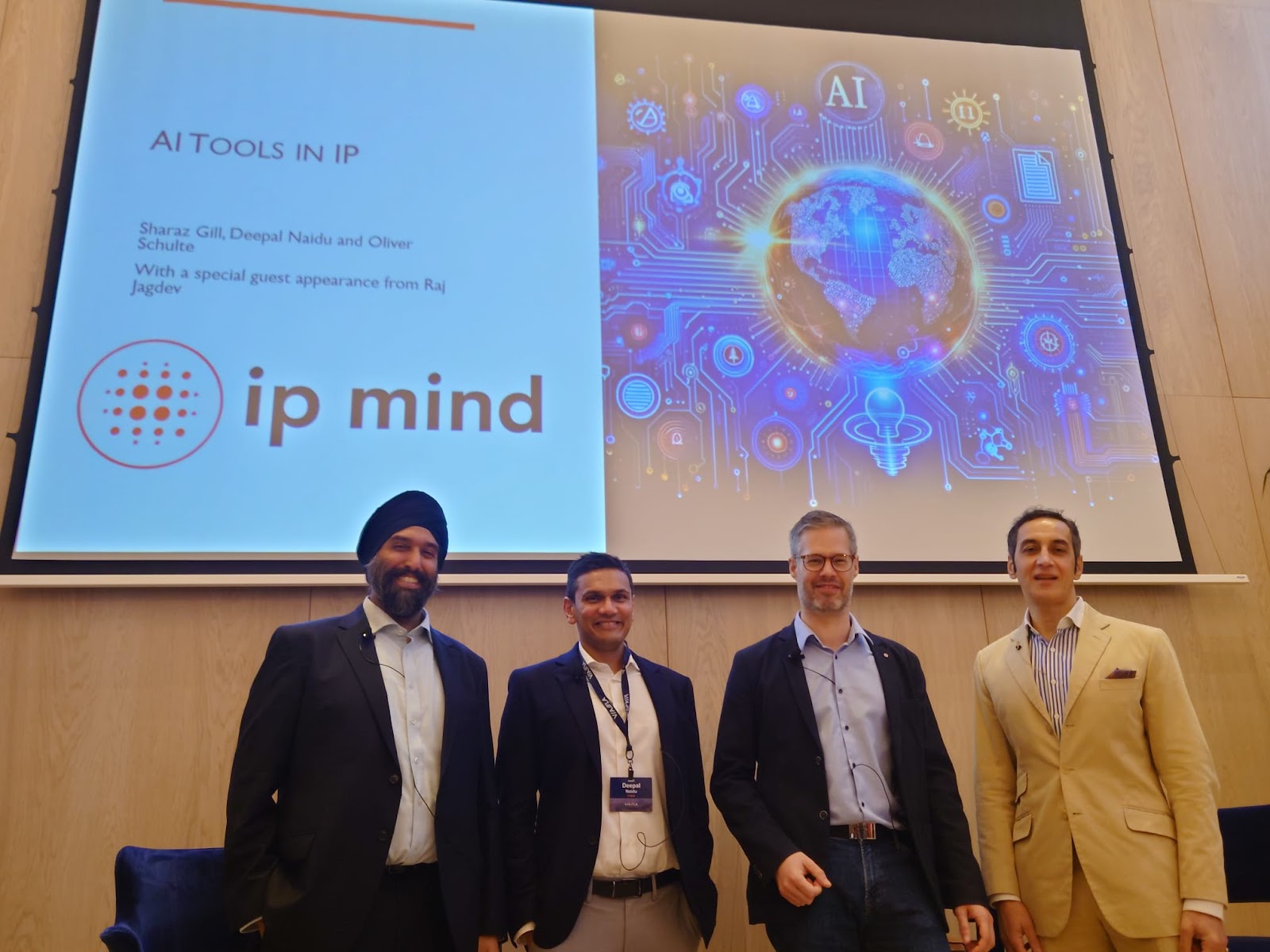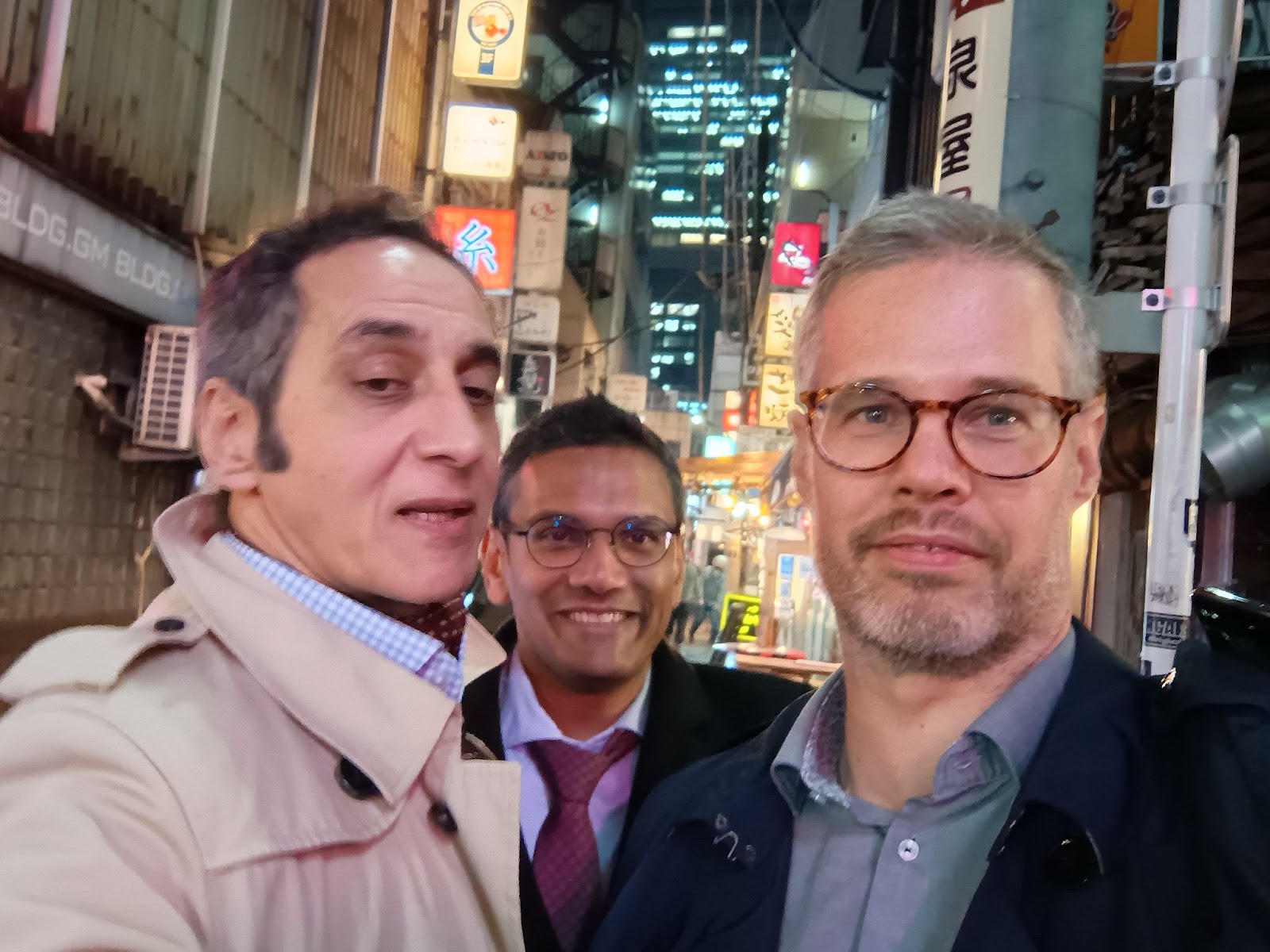
The idea for IP Mind came from years of firsthand frustration — not as a lawyer or consultant, but as someone running businesses in mobile and consumer tech.
During my time at HTC in the thick of the smartphone wars, and later as CEO of Bullitt Group and Chief Strategy Officer at HMD Global (Nokia phones), I faced the same recurring challenge: despite being in senior leadership, I never had a clear view of our patent exposure. I couldn’t tell which patents mattered, what we were at risk for, or even where we might hold value ourselves.
The SEP space always felt like a game only a handful of insiders could play — everyone else was either overpaying or operating in the dark. That never sat right with me. It seemed fundamentally unfair that companies investing heavily in innovation couldn’t access basic visibility into the patents they were using or owning.
We built IP Mind to change that. Our goal was to democratize access to SEP intelligence — to make it faster, more transparent, and less dependent on expensive consultants. Whether you’re licensing in or out, we wanted to give both sides a fair, data-driven view. For me, the emotional driver was always clarity. I’d been on the receiving end of the ambiguity and the stress it creates. I wanted to build something that replaced that uncertainty with confidence.
One major trend is the globalization of technology. Products today — whether in 5G, video codecs, Wi-Fi, or EV charging — are designed for global markets, which makes adherence to technical standards, and by extension SEPs, more important than ever.
With this comes a growing need for fairness in SEP licensing. Historically, there’s been an imbalance, but that’s starting to shift. Both licensors and licensees are now more open to AI-driven solutions, recognizing that traditional manual approaches are too slow and costly to scale.
We’re also seeing higher demand for transparency and data-backed decision-making in negotiations, compliance, and litigation prep. And interestingly, new industries — automotive, IoT, and more — are becoming active in the SEP space, expanding the ecosystem and driving demand for efficient, scalable tools. That’s exactly where IP Mind fits.

Several players are tackling the SEP challenge from LexisNexis/IPlytics, which uses AI to flag undeclared patents across complex standards landscapes, to Clarivate, which combines deep human expertise with data-backed insights across multiple SEP domains. What sets IP Mind apart is our hybrid model: we harness the power of LLMs for scale and semantic pattern detection, and anchor that with seasoned SEP analysts who ensure outputs are objective, explainable, and strategically aligned. This allows us to rapidly sift through over-declared data, surface ‘hidden’ SEP opportunities, and deliver clarity on licensing and competitive positioning all while offering audit-ready reasoning for every determination. In a domain where “because the computer says so” isn’t enough, IP Mind brings both the AI scale and the human insight needed to lead.
Absolutely. While SEPs are our initial focus, the core of our technology combining LLM-driven analysis with deep domain expertise can be applied to any complex IP landscape. That includes non-essential patents in high-tech sectors. On the standards side, we see opportunities in areas like EV charging, IoT protocols, and energy standards, where patent essentiality and licensing are becoming hot topics. The same challenge exists: vast volumes of technical and legal documents, high stakes, and the need for objective, explainable analysis. Our approach is built to scale into these adjacent markets without losing the precision that makes it valuable for SEPs.
We've leveraged our extensive corporate networks from our previous careers in the patent industry. Having worked at major companies dealing with SEP portfolios, we already had relationships with the key decision-makers - patent directors, licensing executives, and IP counsel - who became our early customers and referral sources. Since we're bootstrapped, this network-based approach was essential because it gave us credibility and access without needing a big marketing budget.
We focus on thought leadership through industry conferences to expand beyond our immediate network. This combination of personal relationships and industry positioning has been our most effective customer acquisition strategy in this highly specialized market.
Yes — we’ve already delivered measurable impact across different industries. For example, with a leading patent pol, we uncovered previously unrecognized SEPs in their portfolio, adding significant value and enabling them to bring new licensors into their patent pool. For a leading consumer electronics company, our analysis allowed them to quickly and accurately assess the essentiality of patents in potential acquisitions, helping optimize their investment decisions and reduce risk.
In the telecom space, we worked with an Asian telecom giant to reposition their portfolio through SEP mining, which strengthened their negotiation leverage and boosted licensing revenues. And for a global tech firm, our support in SEP prosecution increased the number of their patents recognized as essential, directly enhancing both the value and the strategic strength of their portfolio. Each of these cases shows how our hybrid AI-plus-expert approach translates into tangible commercial outcomes.
The recent cancellation of the proposed EU SEP regulation highlights just how fluid and politically sensitive the FRAND landscape is. While the EU has stepped back—for now—from imposing stricter centralized essentiality checks, the underlying drivers for greater transparency, consistency, and fairness in licensing remain very much alive, both in Europe and globally.
For IP Mind, this volatility reinforces the value of a flexible, evidence-driven approach. Our business model is not dependent on any single regulatory framework—we already produce auditable, explainable SEP analyses that could slot seamlessly into whatever future regimes emerge, whether in the EU, UK, US, or Asia.
In fact, regulatory uncertainty often increases demand for our services: licensors and licensees alike need independent, defensible assessments to navigate negotiations in the absence of a clear central authority. If future FRAND frameworks shift toward mandatory evaluations, stricter pool criteria, or public databases, our hybrid LLM + expert methodology is ready to deliver at scale, with the rigour and transparency regulators are seeking.
The hardest part was teaching AI to work in a domain where being wrong isn’t an option. SEP analysis blends dense technical detail with legal nuance, so a single incorrect claim mapping can destroy trust. We’ve built our system to prevent hallucinations before they happen—every AI output is tied to verifiable sources and checked by seasoned SEP experts. Having filed 8 patents ourselves, we’ve lived the technical and procedural challenges first-hand, and that experience shaped our hybrid AI-plus-human approach to be both fast and defensible.
Sharaz and I first worked together at HTC, right in the middle of the smartphone wars. We kept in touch over the years, and I always admired his deep expertise in both the legal and technical sides of IP. Later, he worked with Deepal at Via Licensing, one of the largest patent pools in the world.
Both Sharaz and Deepal are patent attorneys with strong engineering backgrounds — and they’d experienced the same SEP frustrations I had, but from the legal side.
When the three of us started talking, it clicked quickly. My background in corporate strategy and scaling businesses paired naturally with their technical and legal depth. We had the perfect mix — commercial, legal, and technical — along with a shared vision for using technology to bring transparency and fairness to SEP licensing. That’s how IP Mind was born.

From the start, we went with an equal split. Each of us brings unique strengths — commercial strategy, deep legal expertise, and technical know-how — and we all saw ourselves as part of a balanced “dream team.” That equal footing reinforced our mutual respect and shared mission from day one.
Team is everything. I’ve scaled organizations from a single person to hundreds, and the lesson is always the same: success comes down to the quality of your people and how you enable them to thrive.
One principle I’ve carried since my first manager told me: “If you want to attract good people, you have to let them grow — and sometimes let them go.” The best talent wants autonomy, purpose, and the chance to lead. At IP Mind, we hire for capability, integrity, and initiative — then give people the trust and freedom to make things happen.
That’s how we move quickly, punch above our weight, and stay resilient.
Yes, we're currently planning to raise capital to support our growth trajectory. The funding will primarily enable our transition to a self-service model, which is crucial for scaling in the SaaS space. We're also looking to expand our technical capabilities, particularly our LLM-powered analysis engine, and broaden our market reach beyond our current network-driven customer base.
The patent AI space is attracting significant investor interest right now. Companies like Patlytics raised $4.5M from Google's AI fund and Solve Intelligence secured $12Mall focusing on AI-powered patent workflows. Our goal is to use the funding to build the infrastructure needed for scalable growth - developing robust self-service onboarding, expanding our AI capabilities across more patent classification systems, and investing in the sales and marketing needed to move beyond our bootstrapped, network-dependent approach.
Building a startup in the SEP space sometimes feels like explaining fine print in Morse code — but with the right team, a bit of AI, and plenty of caffeine, we’re making it surprisingly elegant.
Check out the profile to see their latest milestones and subscribe to stay in the loop with all their updates!
Inspiring founder stories you can’t miss!